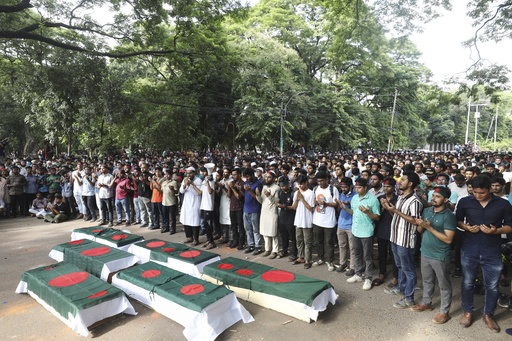In Bangladesh’s capital, Dhaka, disruptions were felt as protesters attempted to enforce a “complete shutdown” following days of clashes between student protesters, police, and ruling party-supported student activists. The streets were quieter than usual with many staying home and malls closing their doors. While offices and banks remained open, transportation options were limited, prompting some commuters to alter their usual routines.
The demonstrations began as a protest against a quota system for government jobs, which students argue benefits political allies of the ruling party. Violence erupted on the campus of Dhaka University earlier in the week, resulting in six fatalities. The escalating tension led to a government directive to close universities nationwide and police raids on the headquarters of the main opposition party.
The unrest continued with reports of clashes, tear gas, rubber bullets, and explosions. Students near BRAC University clashed with police, and checkpoints were established at Dhaka University entrances. The protesters announced plans for a nationwide shutdown in response to the treatment of demonstrators by security forces.
The protesters are advocating for the abolishment of the quota system, which reserves a significant percentage of government jobs for relatives of veterans from Bangladesh’s war of independence in 1971. They argue that the system is biased and seek a merit-based alternative. Efforts to address the quotas have faced legal challenges and judicial review, with a pending ruling on the horizon.
Prime Minister Sheikh Hasina offered reassurance that justice would prevail and that a judicial investigation would be conducted into the recent deaths. She acknowledged the need for patience and expressed hope in a fair resolution by the Supreme Court. Meanwhile, concerns were raised by U.N. Human Rights Chief Volker Türk, emphasizing the importance of investigating acts of violence and upholding fundamental rights to expression and assembly.
Amid accusations and counter-accusations between the ruling party and the opposition, the situation remained tense, with arrests made and weapons confiscated. The government’s actions were criticized as attempts to deflect attention from the core issues fueling the protests. As Bangladesh grapples with the aftermath of recent events, calls for accountability, dialogue, and respect for human rights echo across the nation.
